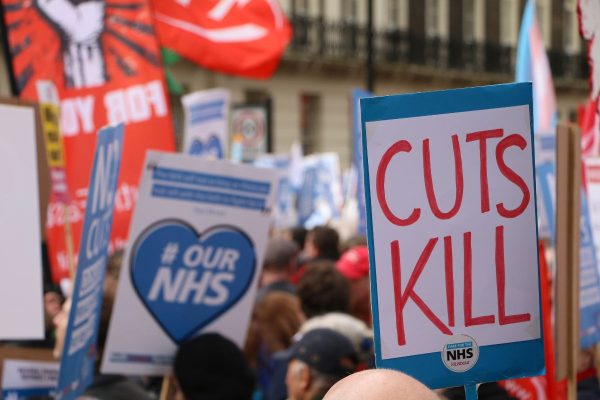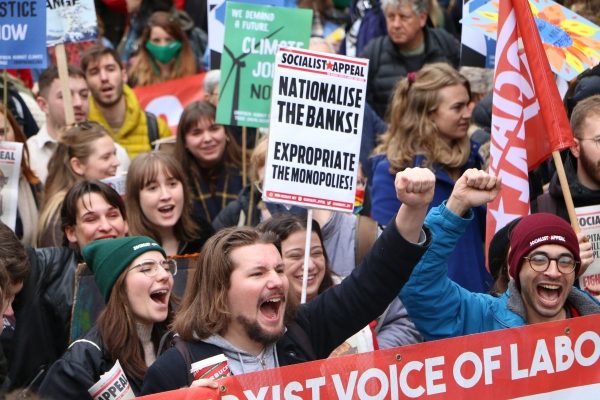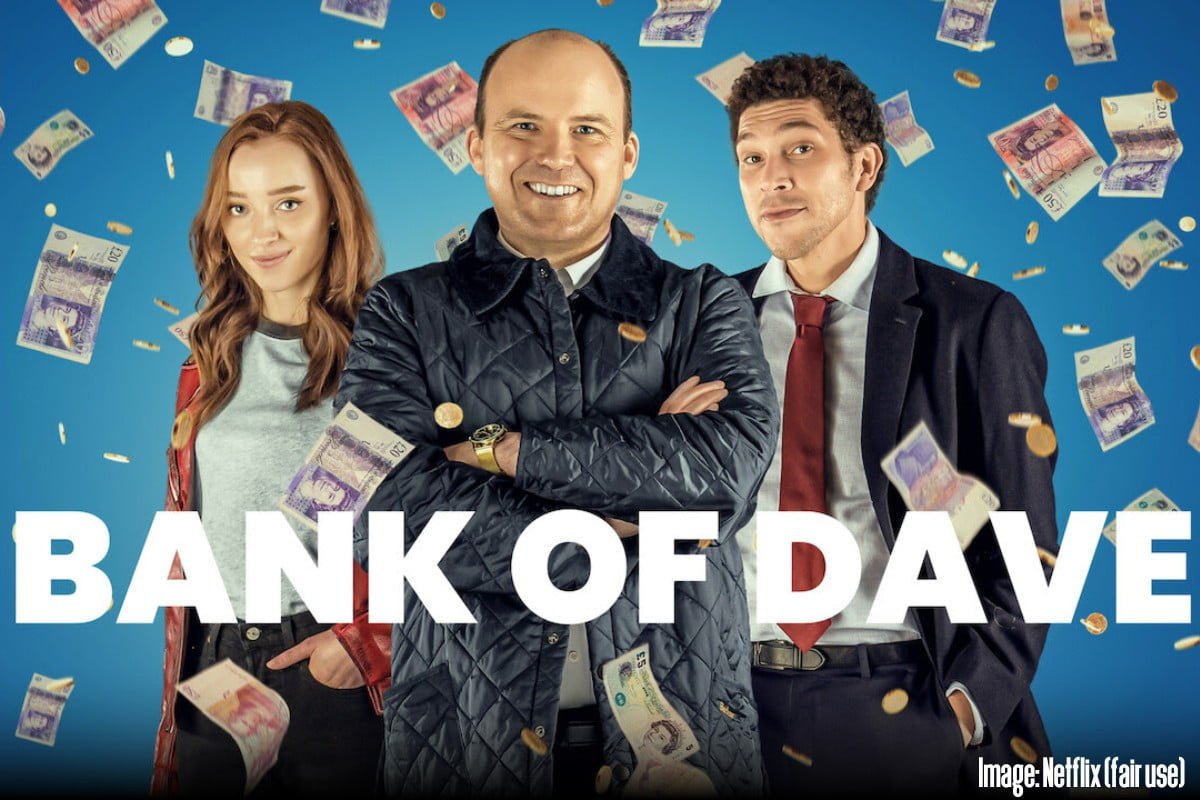Netflix’s feel-good film Bank of Dave tells the ‘true(ish)’ story of self-made millionaire Dave Fishwick, who fights to set up a local community bank to revive the town of Burnley.
In the midst of a new global banking crisis, with lenders and finance houses from the USA to Switzerland collapsing, this comedy has gained greater pertinence since its release earlier this year.
But the film falls flat in arguing that we need to take the capitalists on at their own game, rather than fighting to get rid of their rotten system entirely.
Crooks and cronies
Bank of Dave pulls no punches in portraying the lengths the bankers will go to protect their interests.
From the first whiff of Dave’s plans, a villainous old boys club of London bankers start colluding to block him from establishing his new bank. He is soon arrested on a legal technicality, branding him with a criminal record.
In court, Dave’s lawyer, Hugh, argues that the banks are abusing the legal system to protect their monopoly. Their actions are certainly extreme and dramatic. But this is not a case of accident or abuse. In the final analysis, the law, the courts, and the police exist to serve the interests of capitalism, not the public good.
The bankers then erect further barriers, setting an absurd minimum for the money that Dave needs to cough up in order to set up his bank. As one financier explains, their trump card lies in the fact that they ‘make the rules’ – that is, in capitalism’s inherent corruption and cronyism.
This sums up not only the underhandedness of these particularly decrepit moneymen, but the logic of the entire crooked capitalist class: securing their power and privileges by rigging the system in their favour.
Save our NHS

The lack of investment in working-class communities like Burnley is portrayed through the example of the NHS. The film takes a swipe at a government that chronically underfunds public services while being more than willing to bail out the bankers.
Dave’s niece, Alexandra, is a doctor, who works in the local hospital and is constantly overstretched. On a trip to a bursting A&E, well-to-do Hugh is met with her cold disdain and anger when he asks, in hushed tones, if his private health plan will help him be seen sooner.
This alludes to the two-tier service now spreading through the NHS, highlighting the widespread failures damaging Britain’s healthcare system.
The Bank of Dave, however, suggests that the philanthropy of millionaires is enough to stabilise the country’s creaking public services. In reality, however, the erosion of the NHS is the result of years of austerity and privatisation, which in turn is the logic of capitalism in crisis.
To turn this dire situation around and save our NHS, we need to expropriate the banks and billionaires, not rely on their generosity.
Reform or revolution?
This theme runs throughout the film. The main focus in the Bank of Dave is on the idea of ‘a new way of banking’, to bring about community-level change. At the same time, it takes swipes at the viability of any broader transformation of society.
One former union shop steward – now a businessman thanks to one of Dave’s loans – remarks jokingly that Dave “turned [him] into a capitalist”. Later, someone “slightly more left-wing than Karl Marx” is said to have been convinced that community banking and philanthropy is the way forward.
These examples may seem like throw away comments. But they propagate a belief that fighting for genuinely radical change is ultimately a utopian dream, which must be put aside in favour of ‘concrete’, ‘practical’ solutions in the here and now.
But capitalism cannot be patched up, or reformed to be ‘nicer’ and ‘kinder’. You cannot cure cancer with an aspirin. To revitalise our communities, a root-and-branch transformation is required: a socialist revolution.
Nationalise the banks!

Against all odds, and only due to a chance Def Leppard fundraiser, the Bank of Dave becomes the first commercial bank to be approved in 150 years.
The film closes with updates about the real (less humorously named) Burnley Savings and Loans. While this community lender did not succeed in getting its banking licence approved in reality, it has helped fund local initiatives, including a walk-in medical service.
This idea of local community banking is praised as the film fades to black, including from figures such as Blairite Chuka Umunna and other right-wingers.
The proof is in the pudding, however. For all the initiatives and achievements of the ‘Bank of Dave’, what fundamentally has changed?
Burnley, like other working-class communities, is still deprived, with high poverty rates. The NHS is not only underfunded, but facing an utter catastrophe. And the banking system is still a playground for the rich, at the expense of the exploited majority.
If things have changed, it is only for the worse, as the crisis of capitalism intensifies and deepens. And community banking cannot do nothing to plaster over these cracks. The capitalists cannot be beaten at their own game.
Only the working class – mobilised around a clear socialist programme to nationalise the big banks and monopolies that dominate the global economy – can rid society of poverty, misery, and inequality, and create a world fit for humanity.






